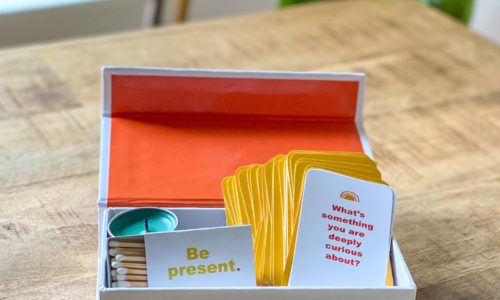Surprising Truth #2: We don’t give compliments to the young people.
The truth is that children know immediately when praise is meaningless. I learned this in a painful way when Sam and Charlie told me to stop saying, “that’s awesome.” They told me that it makes them feel like I’m not paying attention to what they are really doing.
I knew better than to throw that word around. In March of 1980, my father lamented to me the loss of the meaning of “awesome” because of its overuse. He asked me to stop using it so that when I really needed it, it would mean something powerful again.
The power of words. It’s daunting to imagine that each time we speak, we are making a choice that ultimately can be seared into a child’s memory.
At Acton we take this truth very seriously. Because our guides are not the center of attention in the studios and speak fewer words than any teacher in a traditional classroom,, each word must be chosen thoughtfully.
We believe that the best way to build a child’s inner character and self-esteem is to focus on their actions and their work. As Ron Berger says in An Ethic of Excellence: “I don’t believe self-esteem is built from compliments. Students who are struggling or producing lousy work know exactly how poor their performance is – compliments never seem genuine. All the self-esteem activities and praise in the world won’t make them feel like proud students until they do something that they can value.”
Part of the culture of Acton is allowing students to experience failure, try again and then document their progress. They begin to see the results of their efforts. Authentic progress. They get to experience the pleasure of improvement. They are on a journey towards excellence and will not be satisfied in muddled mediocrity. Frivolous praise isn’t helpful or encouraging to them. They want the truth.
This focused shift moves us to stop saying simply, “Good job!” but instead say, “I see how hard you worked to master that math skill.” Or another example, we refrain from saying: “You are so smart!” but freely say: “I can tell you struggled with that choice and it looks like you are happy with your decision.”
Our reward is seeing that knowing smile and the light of joy in the eyes of the student who fully accepts our words because they are true to his or her experience.
From school to home I go. I reflect back to the times I have spouted off my meaningless praises to my children. Jeff reminds me that our children will become who they were meant to become in spite of us. He has told me many times, “You don’t have as much power as you think you have. They are going to be who they are going to be. It’s not up to us.” I hear him but I’m going to keep trying and will keep forgiving myself as needed. For this is how we keep this parenting journey filled with laughter and joy. And I think that’s awesome.


